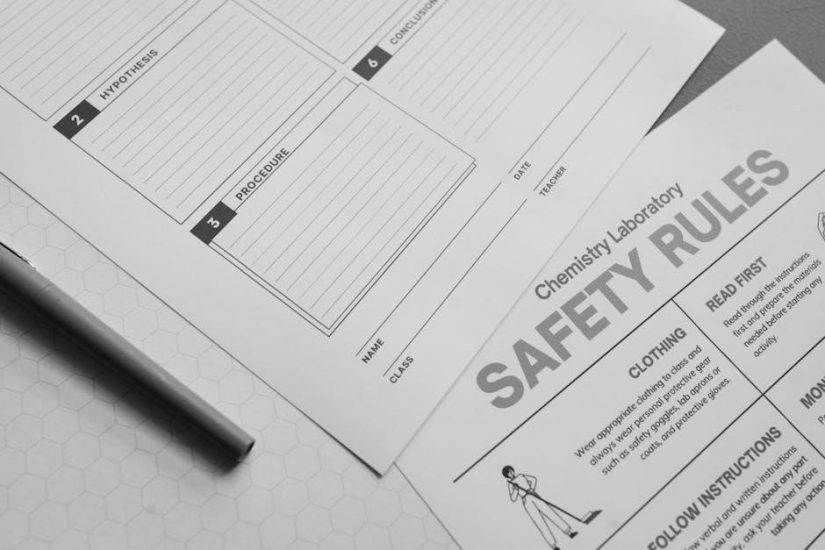The AQA Combined Science Revision Guide provides a comprehensive overview of the GCSE curriculum, offering clear explanations, practice questions, and practical skills coverage to support student success effectively.
1.1 Overview of the AQA Combined Science Curriculum
The AQA Combined Science curriculum integrates Biology, Chemistry, and Physics, offering a balanced approach to scientific understanding. It covers core topics like cell biology, chemical reactions, and physics principles, while emphasizing practical skills and mathematical applications. Designed for both Foundation and Higher tiers, the curriculum ensures a comprehensive learning experience, preparing students for real-world scientific challenges and fostering critical thinking skills essential for GCSE success.
1.2 Importance of Revision for GCSE Combined Science
Regular and effective revision is crucial for GCSE Combined Science success. It reinforces understanding of key concepts, improves retention of complex topics, and enhances problem-solving skills. Revision helps identify knowledge gaps and builds confidence for exams. By practicing past papers and review questions, students can refine their techniques and master the application of scientific principles. Consistent revision ensures a strong foundation for tackling both Foundation and Higher tier assessments effectively.
1.3 Key Features of the AQA Combined Science Revision Guide
The AQA Combined Science Revision Guide is a comprehensive resource designed to support students in their GCSE preparation. It features clear and concise revision notes for every topic, along with practice questions and past paper exercises to reinforce learning. The guide includes detailed coverage of required practicals, maths skills, and Working Scientifically. Additional online resources, such as videos and quizzes, provide interactive learning opportunities. This guide is tailored for both Foundation and Higher tiers, ensuring all students can achieve their full potential.

Biology Revision Guide
The Biology section covers key topics like cell biology, infection response, and photosynthesis, with clear explanations and practical examples to enhance understanding and exam preparation effectively.
2.1 Cell Biology and Organization
This section focuses on the fundamental structures and functions of cells, including cell membranes, organelles, and transport mechanisms. It explores how cells specialize and organize into tissues, organs, and systems, forming complex organisms. The revision guide provides detailed explanations of cell division, including mitosis and meiosis, and highlights the importance of cellular organization in maintaining life processes. Practical skills, such as microscopy and cell counting, are also covered to reinforce theoretical knowledge and prepare students for lab-based assessments effectively.
2.2 Infection and Response
This section covers the causes of infections, including bacteria, viruses, and fungi, and how the immune system responds. It explains the role of white blood cells, antibodies, and vaccines in preventing and fighting infections. The revision guide also explores how humans have developed treatments like antibiotics and antivirals to combat pathogens. Practical skills, such as identifying microorganisms under a microscope and understanding hygiene practices, are highlighted to prepare students for real-world applications and exam questions effectively.
2.3 Photosynthesis and Respiration
This section explains the processes of photosynthesis and respiration, focusing on their importance in energy transfer. It covers the stages of photosynthesis, including light-dependent and light-independent reactions, and the role of chloroplasts. Respiration is explored in both aerobic and anaerobic forms, highlighting the production of ATP and by-products like carbon dioxide and lactic acid. The revision guide includes practical experiments, such as measuring oxygen production in plants and investigating the effects of temperature on respiration rates, to deepen understanding and prepare for exam questions confidently.
Chemistry Revision Guide
This guide covers key chemistry concepts, including chemical reactions, energy changes, acids, bases, and salts. It provides clear explanations, practice questions, and practical skills to enhance understanding and exam readiness.
3.1 Key Concepts in Chemistry
The AQA Combined Science Chemistry section focuses on fundamental concepts such as atomic structure, the periodic table, and chemical bonding. Students explore the properties of elements, compounds, and mixtures, as well as chemical reactions and energy transfer. Key topics include acids, bases, and salts, along with the behavior of gases, liquids, and solids. The guide emphasizes understanding chemical changes, conservation of mass, and the importance of the periodic table in predicting properties and behavior. These concepts form the foundation for analyzing chemical processes and solving practical problems.
3.2 Chemical Reactions and Energy Changes
Chemical reactions involve the transformation of substances, often accompanied by energy changes. Exothermic reactions release energy, while endothermic reactions absorb it. Activation energy is required to initiate reactions, and catalysts can speed them up without being consumed. The guide covers thermodynamics, including entropy and enthalpy changes, helping students understand energy transfer and reaction feasibility. Practical examples and calculations are included to reinforce these concepts, ensuring a solid grasp of chemical processes and their energetic implications.
3.3 Acids, Bases, and Salts
Acids, bases, and salts are fundamental in chemistry, with properties defined by their pH levels and ionic interactions. Acids donate protons, while bases accept them, leading to neutralization reactions forming salts and water. The revision guide covers strong and weak acids/bases, pH calculations, and salt formation through acid-base reactions. Practical examples, such as hydrochloric acid reacting with sodium hydroxide to produce sodium chloride, illustrate key concepts. Understanding these processes is crucial for analyzing chemical behavior and industrial applications.
Physics Revision Guide
The Physics Revision Guide covers essential topics like forces, motion, electromagnetism, and energy, providing clear explanations, practical examples, and practice questions to enhance understanding and exam preparation.
4.1 Forces and Motion
The Physics Revision Guide explores forces and motion, covering key concepts such as balanced and unbalanced forces, Newton’s laws, and types of motion. Students learn to analyze motion using graphs and equations, understanding acceleration, velocity, and distance. Practical examples and problem-solving techniques are included to help students master calculations and graphical analysis. The guide also emphasizes real-world applications of forces and motion, enabling students to connect theoretical knowledge with practical scenarios, enhancing their understanding and exam performance significantly.
4.2 Electromagnetism and Radiation
The Physics section delves into electromagnetism and radiation, explaining how electromagnetic waves are generated and their properties. Students explore the electromagnetic spectrum, including visible light, UV, and infrared. The guide covers how waves transfer energy and practical applications like communication technologies. It also addresses safety considerations for different types of radiation, ensuring a comprehensive understanding of both the benefits and risks associated with electromagnetic waves in everyday life and scientific contexts.
4.3 Energy and Waves
This section focuses on understanding energy types, transfers, and transformations, along with wave properties and behaviors. Students learn about mechanical, electrical, thermal, and nuclear energy, as well as wave characteristics like amplitude, frequency, wavelength, and speed. Practical applications, such as energy-efficient technologies and wave uses in communication, are explored. The guide emphasizes energy conservation principles and the mathematical relationships governing wave motion, preparing students to apply these concepts in problem-solving scenarios.
Practical Skills and Required Practicals
The AQA Combined Science Revision Guide provides detailed coverage of practical skills and required practicals, ensuring students master experimental techniques and data analysis for exam success.
5.1 Developing Practical Skills
The AQA Combined Science Revision Guide emphasizes the importance of developing practical skills through hands-on experiments and data analysis. Students learn to use scientific apparatus, measure accurately, and plan investigations. The guide covers essential techniques like microscopy, chromatography, and calorimetry, along with ethical considerations and safety protocols. Clear instructions and diagrams help students master practical procedures, while practice questions test their ability to interpret results. This section ensures students are well-prepared for lab work, fostering confidence and competence in scientific inquiry and experimentation.
5.2 Key Required Practicals in Combined Science
The AQA Combined Science Revision Guide highlights essential practicals, such as identifying cell structures under a microscope, testing the effect of pH on enzymes, and investigating the separation of substances using chromatography. These activities align with the curriculum, reinforcing theoretical knowledge through hands-on learning. The guide provides detailed instructions, diagrams, and expected results, enabling students to confidently perform and analyze experiments. This focus on key practicals ensures readiness for required assessments and enhances understanding of scientific processes and techniques.
Exam Strategies and Techniques
Master time management, question analysis, and strategies for tackling multiple-choice and extended-response questions. Utilize past papers for practice, ensuring confidence and accuracy in exam conditions.
6.1 How to Approach Different Question Types
Mastering different question types is crucial for success. Start with multiple-choice questions by eliminating incorrect options. For short-answer questions, focus on concise, relevant points. Practical-based questions require recalling experiments and their analysis. Extended-response questions demand structured essays with clear introductions, explanations, and conclusions. Always read questions carefully, plan your answers, and allocate time proportionally. Practice past papers to familiarize yourself with formats and improve your response techniques, ensuring efficient use of exam time.
6.2 Time Management During the Exam
Effective time management is essential for exam success. Allocate time based on question weights, ensuring longer questions receive more attention. Start with questions you’re confident in to secure marks quickly. Skim through the paper first to gauge the workload. For multiple-choice questions, spend no more than 45 seconds each. For structured questions, plan your answer before writing. Leave 10 minutes at the end to review and correct errors. Stay calm, prioritize high-mark questions, and avoid spending too long on a single question.

Revision Resources and Tools
Discover a variety of resources to aid your revision journey, including revision guides, workbooks, online platforms, and past papers, offering practice opportunities and clear explanations for success.
7.1 Recommended Revision Guides and Workbooks
Top-rated revision guides like the Collins AQA GCSE 9-1 Combined Science Trilogy Revision Guide and CGP’s AQA GCSE Combined Science Revision Guide are highly recommended. These resources provide clear explanations, practice questions, and comprehensive coverage of the curriculum, including required practicals and maths skills; Workbooks complement these guides, offering additional practice opportunities to reinforce learning. Both Higher and Foundation level resources are available, ensuring tailored support for all students. Online editions and video tutorials further enhance revision effectiveness.
- Collins AQA GCSE 9-1 Combined Science Trilogy Revision Guide
- CGP AQA GCSE Combined Science Revision Guide
- Workbooks for targeted practice
- Online resources for interactive learning
7.2 Online Resources for Combined Science Revision
BBC Bitesize, Kerboodle, and online platforms offer extensive resources for AQA Combined Science revision. These include interactive quizzes, video tutorials, and exam-style questions. Students can access revision guides, past papers, and self-marking quizzes to identify knowledge gaps. Online tools also provide personalized learning plans, flashcards, and video explanations, making revision flexible and engaging. Utilizing these resources enhances understanding and exam preparedness, catering to different learning styles and preferences.
- BBC Bitesize revision materials
- Kerboodle interactive resources
- Online quizzes and video tutorials
- Personalized learning plans

Past Papers and Practice Questions
Past papers and practice questions are essential for exam preparation, providing real exam scenarios and helping students identify knowledge gaps. Resources like BBC Bitesize, Kerboodle, and Collins offer access to practice questions, past papers, and self-marking quizzes tailored to the AQA Combined Science curriculum.
8.1 Benefits of Using Past Papers
Using past papers is crucial for exam preparation, as they provide real exam scenarios, helping students familiarize themselves with question types and timing. Past papers allow students to identify knowledge gaps and improve their answering techniques. Regular practice with past papers enhances time management skills and reduces exam anxiety. Additionally, they highlight common topics and question patterns, enabling focused revision. This resource is invaluable for building confidence and ensuring readiness for the AQA Combined Science exams.
8.2 How to Analyze and Learn from Practice Questions
Analyzing practice questions helps identify strengths and weaknesses, allowing targeted revision. Review incorrect answers to understand mistakes and improve understanding. Regularly test yourself using practice questions to reinforce learning. Focus on question patterns and timing to enhance exam readiness. Use self-quizzing techniques to retain information effectively. Learning from practice questions builds confidence and ensures familiarity with exam-style challenges, ultimately leading to better performance in AQA Combined Science exams.

Staying Motivated and Organized
Stay motivated by setting clear goals and celebrating progress. Use revision timetables to organize study time effectively. Maintain momentum with regular breaks and a balanced routine.
9.1 Creating a Revision Timetable
Creating a revision timetable helps organize study time effectively. Start by identifying key topics and allocating specific time slots for each subject. Prioritize challenging areas and ensure a balance between biology, chemistry, and physics. Include regular breaks to maintain focus and avoid burnout. Use digital tools or planners to track progress and stay accountable. A well-structured timetable ensures consistent revision and helps build confidence for exams. Regularly review and adjust the schedule to meet changing needs.
9.2 Tips for Maintaining Revision Momentum
Set clear, achievable goals for each study session to maintain focus. Use active learning techniques like flashcards and quizzes to stay engaged. Incorporate short breaks to recharge and prevent burnout. Prioritize understanding over memorization to build a strong foundation. Rotate subjects to keep revision diverse and interesting. Celebrate small victories to stay motivated. Stay hydrated, eat well, and ensure adequate sleep for optimal brain function. Track progress to identify strengths and areas needing extra attention. Consistency is key to sustained revision success.
